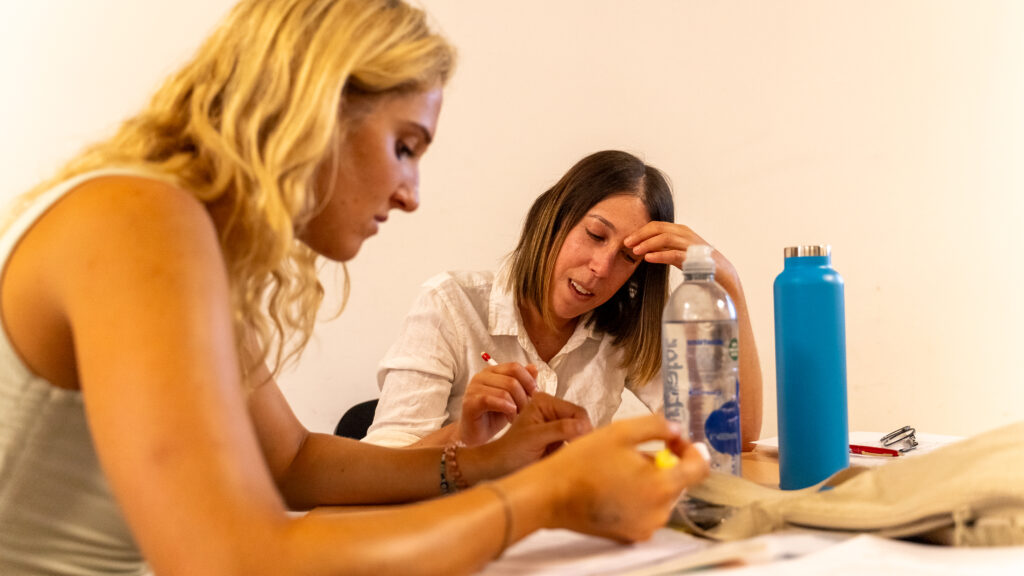As an international student aspiring to study in France, understanding the French education system is crucial to making informed decisions about your academic journey. This comprehensive guide delves into the structure of the French education system, from école maternelle to université, offering a comparative perspective with other global education systems.
Junior School: École Maternelle and École Élémentaire
The French education system begins with école maternelle, which caters to children from age 3 to 6. Unlike many countries where preschool is optional, in France, école maternelle is a fundamental stage that focuses on early socialization and basic academic skills. Children learn through play-based activities, laying the groundwork for formal education.
Following école maternelle, students progress to école élémentaire, which serves children from ages 6 to 11. This phase is akin to primary education in other countries, emphasizing fundamental skills in reading, writing, and mathematics. The curriculum is broad, including French, mathematics, history, geography, science, technology, arts, and physical education.
General breakdown:
- 1st Grade: CP (Cours Préparatoire)
- 2nd Grade: CE1 (Cours Élémentaire 1)
- 3rd Grade: CE2 (Cours Élémentaire 2)
- 4th Grade: CM1 (Cours Moyen 1)
- 5th Grade: CM2 (Cours Moyen 2)
Middle School: Collège
At age 11, students enter Collège, the middle school stage, lasting 4 years (from 6th to 9th grade). This is a transitional phase where students receive a more subject-diverse education. Subjects like foreign languages, physics, and biology are introduced.
General breakdown:
- 6th Grade: 6ème (Sixième)
- 7th Grade: 5ème (Cinquième)
- 8th Grade: 4ème (Quatrième)
- 9th Grade: 3ème (Troisième)
The end of Collège is marked by the Diplôme National du Brevet, a national examination.
High School: Lycée
The high school stage, known as Lycée, spans 3 years. Students choose between general, technological, or vocational streams, tailoring their education to their future career paths. The lycée culminates in the Baccalauréat (commonly referred to as the Bac), a comprehensive examination that is essential for university admission.
General breakdown:
- 10th Grade: 2nd (Seconde)
- 11th Grade: 1ère (Première)
- 12th Grade: Terminale
In contrast to many education systems where standardized tests play a crucial role, the French Bac assesses a wide range of subjects, reflecting the system’s focus on well-rounded education.

Higher Education: Université, Grandes Écoles & CPGEs, IUTs
After completing high school, students in France have several pathways for higher education, including French universities, Grandes Écoles, Classes Préparatoires aux Grandes Écoles (CPGEs), vocational schools, or an Institut Universitaire de Technologie (IUTs).
Public universities provide a wide array of disciplines with a focus on academic and research-oriented education. Grandes Écoles are prestigious and highly selective institutions that offer specialized programs in areas such as engineering, business, or public administration. CPGEs are intensive 2-year programs designed to prepare students for the rigorous entrance exams to Grandes Écoles. Vocational schools and IUTs offer targeted education in specific fields like art, architecture, or social work, with courses that are technically oriented and designed to enter the job market directly.
Please find more info about universities, vocational schools, colleges, IUTs, grandes écoles and prep schools here:
– https://stg-gogofrance-ggfstaging.kinsta.cloud/en/blog/universities-in-france/
– https://stg-gogofrance-ggfstaging.kinsta.cloud/en/blog/vocational-schools-in-france/
– https://stg-gogofrance-ggfstaging.kinsta.cloud/en/blog/grandes-ecoles/
– https://stg-gogofrance-ggfstaging.kinsta.cloud/en/blog/prep-schools-in-france/
French Education System Global Recognition
France has numerous bilateral agreements with countries around the world, aimed at recognizing academic qualifications mutually. Additionally, the use of the European Credit Transfer and Accumulation System (ECTS) facilitates the recognition of French diplomas within Europe and in other countries that recognize the ECTS framework.
Read more about ECTS framework here: https://stg-gogofrance-ggfstaging.kinsta.cloud/en/blog/european-credit-system-ects/
Also, France is home to some of the world’s renowned universities and Grandes Écoles, specializing in various fields such as business, engineering, and humanities. Degrees from these institutions hold significant weight internationally.
Read more about French diplomas here: https://stg-gogofrance-ggfstaging.kinsta.cloud/en/blog/french-diplomas-recognition/
Plan Your Study in France
The French education system, with its structured stages from école maternelle to université, offers a comprehensive and rigorous educational pathway. Whether you are starting by learning the language or entering a prestigious Grande École, understanding the nuances of the French education system is vital for navigating your academic journey in France successfully.
At Go! Go! France, we’re dedicated to making your dream of studying in France a reality. Through our tailored services, comprehensive support, and student-first approach, we simplify the visa application process and pave the way for your educational adventure in France.
When you feel ready to start, contact Go! Go! France team here to get your life and study in France journey started.











